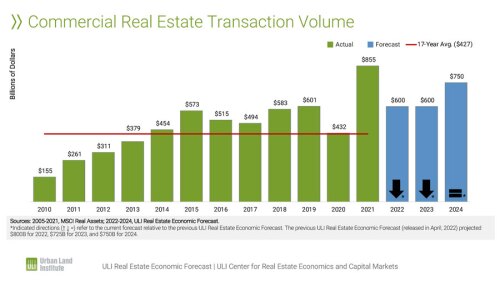The Allen Matkins Capital Markets Roundtable, now in its eighth year, brings together investors, developers, lenders, managers, and intermediaries to share insights and perspectives on the current and future outlook for real estate capital markets at the ULI Fall Meeting. This roundtable discussion, in two parts, featured several industry leaders, including a keynote by Eastdil Secured CEO Roy Hilton March, also a member of the ULI Foundation’s James Rouse Giving Society.
The speakers shared insights, as well as their forecasts for the coming year. Other topics discussed included which sectors of the market are strong, which should be avoided; and what the thoughts and strategies of some major players in real estate financing and investing are. Allen Matkins’ partner William R. Ahern was the program’s moderator, with speaker introductions by Anton N. Natsis, chair of the firm’s Global Real Estate Group.
The following are takeaways from the discussion:
- Volatility will continue but could be worse. Marsh said, “Every time the [U.S. Federal Reserve] has raised rates, volatility has occurred but values recover.” Marsh said 2022 was the worst first half of the year in 50 years for both the Standard and Poor’s 500 index and the real estate investment trust sector. Marsh also noted that commercial real estate has generally outperformed the S&P 500 after a hiking cycle over a three-year period.
- Fear of making a mistake replaced by fear of missing out. “Capital is ultimately going to bless our industry,” said Marsh. In the short term, transactions will be more bespoke placements as risks remain elevated. Marsh said there is an estimated $243 billion in “dry powder” in closed-end funds in North America alone.
- A strong start for 2023? Valerie Achtemeier, vice chairman at CBRE in the capital markets debt and structured finance group, said that she expected life insurance companies to come back into the market in January. She also said that regional banks have been stepping up as the larger banks have pulled back. She also said “time is not your friend” and is encouraging clients to close deals rather than delay.
- Hedging on Housing and Office. Joseph Gorin, managing director and head of U.S. real estate acquisitions and portfolio management at Barings sees self-storage as a hedge on the housing market if people can’t move as easily, and that strip retail has been performing well. Some of the tenant retention models for office may need to be revised, according to Gorin who said, “Most employers are still only about 9 percent of employees back in the office five days a week.” He said that even in the last two months or so, lenders are realizing they don’t want to take possession of large amounts of distressed office, so they may get “more creative” and buyers will also have opportunities.
- Industrial keeps cruising. Amy Curry, partner and chief strategic officer at Dermody Properties, said that in the industrial space, some of her company’s competitors have pulled back, but still her firm is still buying or selling where it’s the right size deal in the right place. Curry said that there is a lot of industrial under construction but until properties are up for leasing, there won’t be a lot of distress.
- Pricing is everything. Kev Zoryan, managing director at Morgan Stanley, said he likes housing generally and student housing specifically, saying, “If you are delivering the right housing at the right price, you will have success.” Zoryan said he is bullish on office and also retail has been fairly strong as consumer spending has yet to decline. Lastly, Zoryan said the industry has an opportunity to consider streamlining and automating so processes are more efficient if and when the markets take a turn.




